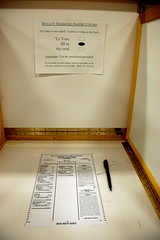The Chicago Tribune ran a story yesterday about the potential effects of Tuesday’s election results titled, “Transformed by Obama’s Win — Has the election of an African-American to the White House shattered stereotypes and changed the way Americans – black or white – view each other?” In addition to interviews with locals in Chicago, the Tribune calls in the sociologists to sort this out in greater detail…
One sociologist points out the remaining ‘structural issues’…
To be sure, few people said they believe Obama’s victory will be enough to transform race relations in the United States radically or instantly.
“There are structural issues that need to be addressed,” said Martin Sanchez-Jankowski, a professor of sociology at the University of California– Berkeley. He said it is much more difficult for people to transfer their attitude toward Obama to the people of color they encounter every day.
“That is not something that any single election will be able to make a major difference in,” Sanchez-Jankowski said.
But on a more optimistic note, sociologist Omar Roberts focuses on how Obama’s victory may be a starting point for future change…
Omar McRoberts, an associate professor of sociology at the University of Chicago, said he thinks the election has provided a forum for the kinds of discussion needed to effect change.
“This election doesn’t represent the erasure of race as an obstacle or as a point of tension,” McRoberts said. “What it marks is the opening of a new space for serious dialogue and hard work.”
Read the full story.





